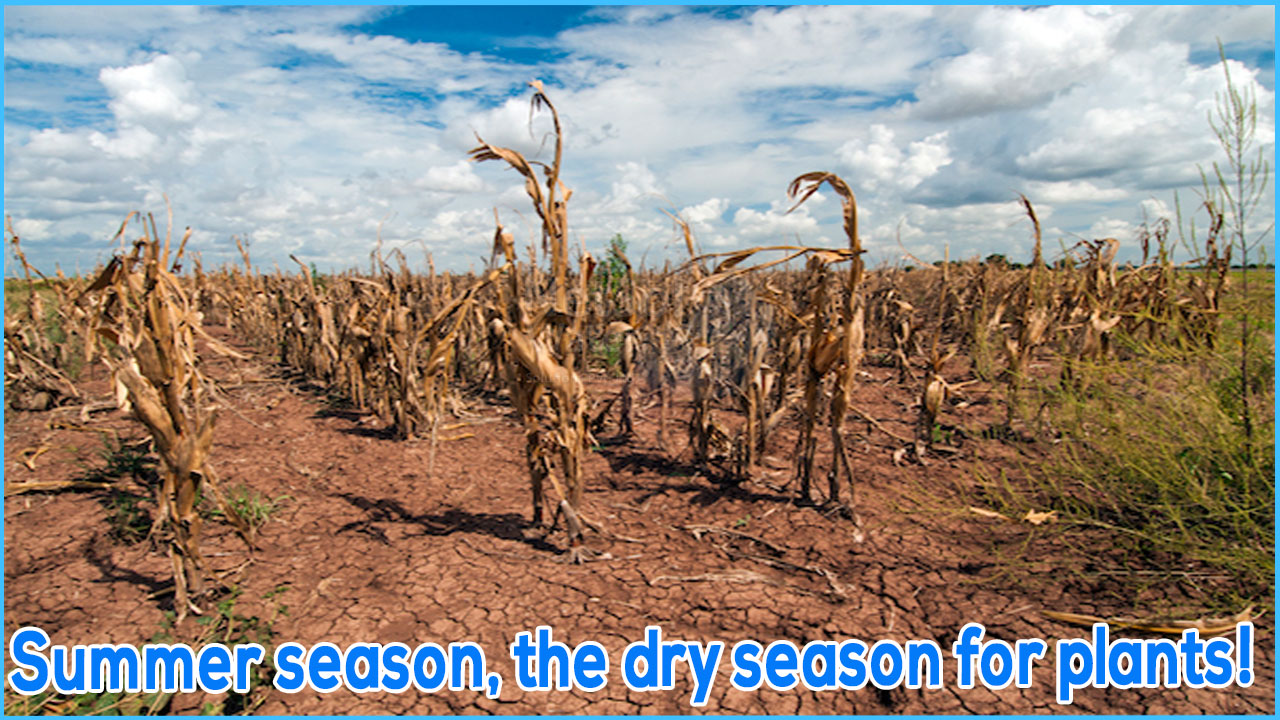Summer season, the dry season for plants
PLANTS ARE VERY SIMILAR TO PEOPLE!
As the temperature warms and the days lengthen, a plant's thirst for water grows, and they sweat a little more, just like humans do. Only their roots get water from the soil, which then goes up the plant to the rest of the plant. As a result, in the summer, it is required to water plants twice with pure water.
Growing Plants with Reverse Osmosis Water
Contaminants are considerably reduced by using a reverse osmosis filter. It's also a popular choice among gardeners who value plant diversity. The most significant advantage is the creation of clean, constant water. As a result, you'll have more control over the nutrients and fertilisers you use. The benefits of reverse osmosis water will be appreciated by gardeners who have problems with bacteria, iron, and chlorine. It's as though you're getting rain from your tap.
Furthermore, the pH of RO water can be simply adjusted. Reverse osmosis' adaptability will help plants with specialised acid or alkaline requirements.
How Does Soft Water Affect Plants?
If your plants get lots of moisture, a little soft water here and there won't hurt. However, it is not advisable to water plants entirely with soft water. Sodium chloride is used in most water softeners, which can promote a slow build-up of sodium in garden soil. This can wreak havoc on plant growth.
Is Hard Water Bad for Your Plants?
Calcium and magnesium carbonate salts are found in hard water. It produces stains, marks, and buildup on sinks and fixtures at home. Hard water minerals, in the appropriate amount, might be beneficial to your plants. Just keep an eye out for signs of stunted development, as high calcium and magnesium levels can harm more diversified plants.
BENEFITS OF USING RO WATER FOR GROWING PLANTS
Water is one of the most important and basic requirements for a plant's growth. Many gardeners nowadays are taking advantage of using RO (reverse osmosis filtered) water for their plants for the following reasons:
-When used in conjunction with organic compost fertilisers, filtered RO water is a perfect complement. When you utilise RO water to water your plants, you have a precise notion of how much fertiliser you're using. The clean, balanced water provided by a RO system is beneficial to the fertilizer's effectiveness. RO is most beneficial when organic fertilisers are used.
-You should use RO water if your garden plants have problems with chlorine, iron, bacteria, and other pollutants. RO water is pure and hygienic. It's almost as if you're receiving rain showers in your garden. When your plants are susceptible to pollutants, this is very important.
-RO water increases the reactivity of minerals and nutrients in your plants. That is the greatest method for plants that have problems with growth and illness.
-RO water provides some confidence that your plants will thrive. It is primarily advantageous to a variety of soil, climatic, and plant situations.
CONCLUSION
Gardens with a diversified or fragile plant life, especially if hard water is their primary supply of water, may face difficulties. Keep a watch out for alkaline pH water or high mineral levels that might cause damage.
It's fine to use soft water, but it won't help your garden in any way. Soft water should only be utilized on outdoor gardens that receive natural rain on a rare basis. Otherwise, your indoor plants should be watered with regular tap water.
For a serious gardener, NETSOL Best RO Water Plants is the option. It allows you to precisely manage the delivery of nutrients to your plants. If you have delicate plant life, reverse osmosis is the way to go.




